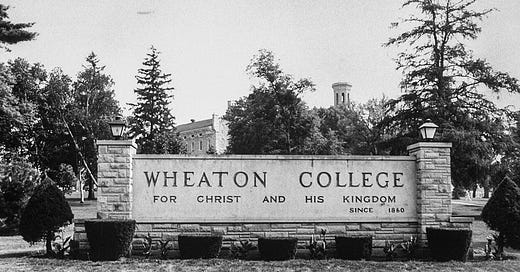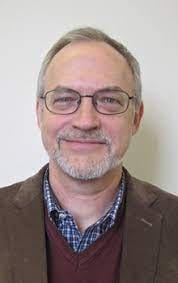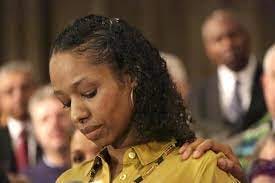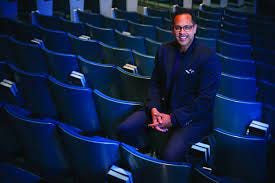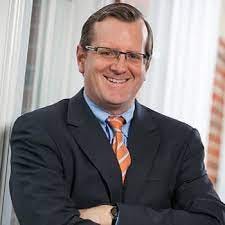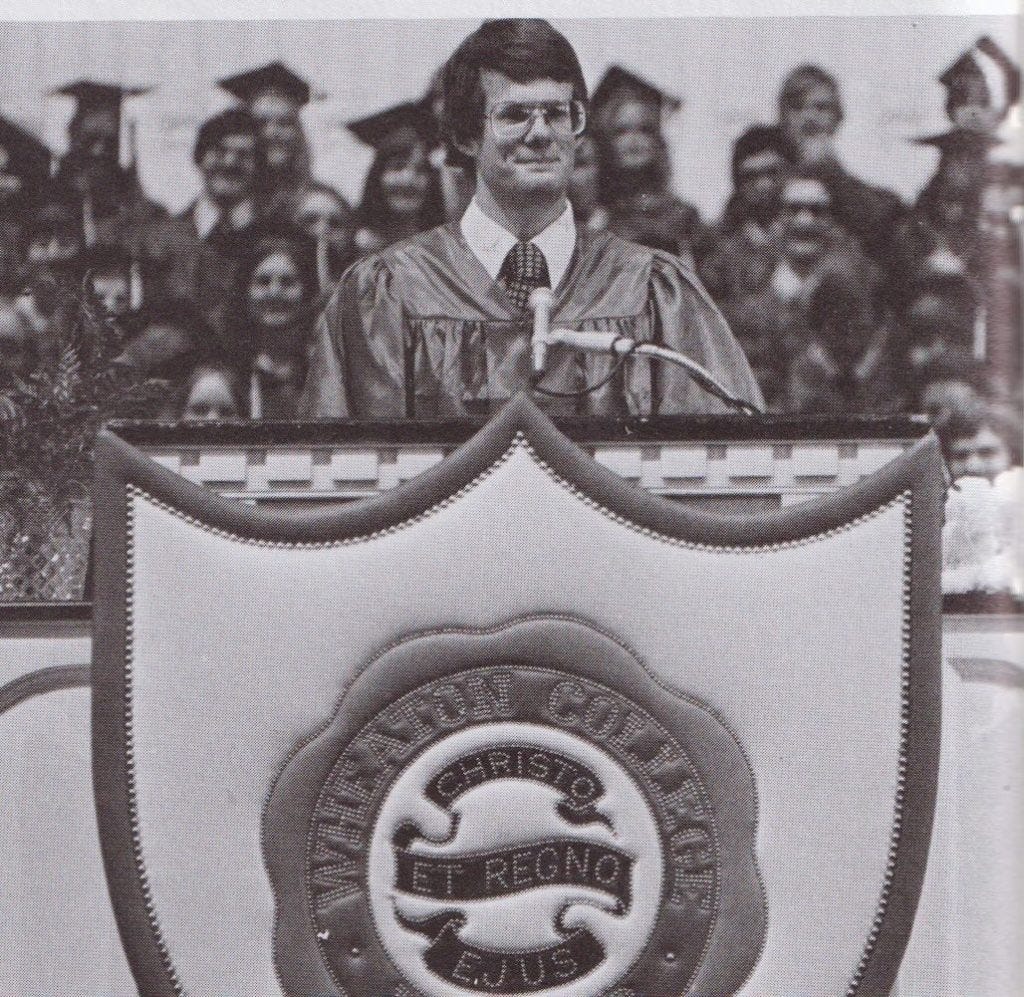Wheaton College & President Buswell: Open letter to Pres. Ryken & Trustees
(Tenth in a series.)
Note: An earlier article in this series was by Wheaton alumni, Bruce R. Chambers ('72).
Below is an open letter by Wheaton alumni Kevin Gregory ('79) to Wheaton's President and Trustees.
It's interesting both men spent their lives working for the judiciary and within law enforcement. Common to their critiques of Wheaton's Report is their condemnation of Wokeism's hypocrisy.
We continue to receive responses from Wheaton alums and will reproduce them when their authors so desire—whether signed or anonymously. Email them to tbbayly@gmail.com. They needn't be articles. Short thoughts are also helpful and an encouragement to the godly.
Thank you, readers, for your kind words and support. Please pray for us.
Please forward these posts to other Wheaton alums. We've been working hard. Please put your shoulder to the plow, also.
-Tim Bayly (Rev.)
•• ━━━━━ ••●•• ━━━━━ ••
Dear President Ryken and Trustees:
The Trustees invited members of the Wheaton community to email their feedback regarding the Task Force Report. I appreciate the opportunity for me as an alum to give my feedback.
I commend the Task Force for identifying serious shortcomings and sinful behavior at Wheaton College regarding the treatment of minorities since Wheaton's founding. The sins and failures identified should be brought to light and acknowledged; the Task Force has done that and I am grateful.
In this email I want to bring to your attention several consequential issues with the Report and recommendations. Later in this email I lay out specific criticism regarding President Ryken and the Board of Trustees.
First I want to speak to the idea that a Christian or a Christian organization can or should repent for the sins of other people. Multiple Scriptural verse references regarding repentance were listed in the Report. The Trustees' September letter and the video from President Ryken explained there would be a process of lament and repentance in response to the Task Force Report. I studied all verses listed and I did not find convincing Biblical support for the concept of repenting for the behavior of other people.
There was no effort on the part of the President, the Trustees, or the Task Force to explain or persuade anyone of the biblical basis for believers to repent for sins committed by other people. Sincere and faithful believers have genuine disagreements as to whether Christians can and should repent for sins committed by others. Indeed I am open to being persuaded that my position could be wrong, but that case was not made.
Over the past weeks I have reviewed the Southern Baptist Theological Seminary 2018 report concerning that institution's history of slavery and racism to help me gain perspective on Christian institutions wrestling with regard to their treatment of non-whites. Dr. Albert Mohler addressed whether anyone can repent for the behavior of others, saying,
We must repent of our own sins, we cannot repent for the dead.
I find Dr. Mohler's view to be within the mainstream of Evangelical thought and practice. I am also convinced his position is supported by the sweep of God's redemptive history laid out in the Old and New Testaments.
Second I want to speak to the matter of Wheaton entering into "dialogue" with Native American tribes. The Report did not identify any sinful or unethical behavior on the part of Wheaton in acquiring any its properties, nor did the Report indicate any tribes have contacted Wheaton for redress. Since the Task Force did not identify a basis for recommending dialogue, the Board of Trustees should have taken no action on the Task Force's recommendation regarding the land issue. So the planned "dialogue" with Native tribes is not called for by the facts presented in the Report and I view this reality as evidence the Task Force took an activist posture. It suggests the Task Force was driven by contemporary Critical Theories more than reason or the Gospel of Christ.
To put it another way, what the Task Force, Trustees, and President have launched with respect to this "dialogue" initiative is little more than an activist-driven performance ritual made to signal moral superiority. Moreover, such "dialogue" in today's culture always follows a particular template, leading to the adoption of Land Acknowledgements and payment of indulgences of one kind or another. I hope and pray Wheaton does not adopt the fashionable practice of those ritual Land Acknowledgements that Wellesley, Princeton, Harvard, and most secular progressive institutions have adopted. Should a Christian institution follow the lead of secular institutions?
Notice how ritualized the recommended Land Acknowledge practice is at Wellesley:
Land Acknowledgments are most often offered in a welcome to the audience, in opening remarks, or in an event program. We will read this acknowledgment at convocation and commencement ceremonies. In addition, faculty, staff, and students are encouraged to incorporate this land acknowledgment into their meetings or gatherings, and other events across campus.
Land Acknowledgements should be seen as performance-oriented, extra-biblical rituals.
I did notice that one member of Wheaton's Board of Trustees is an administrator at a Christian college on the West Coast that has followed the Wellesley model and has adopted Land Acknowledgement rituals. That is most unfortunate for any institution that follows Jesus Christ.
Third I want to raise the issue of whether the current administration and Wheaton Trustees have personally engaged in the same behavior as Wheaton College with respect to land formerly occupied by Native Americans.
I researched publicly-available information (LinkedIn, X/Twitter, and the Wheaton.edu website) of several members of Wheaton's administration, Board of Trustees, and Task Force. It appears President Ryken, Darrell Bock, Dale Wong, Katherine Graber, Theon Hill, Andrea Scott, Tracy McKenzie, David Iglesias, Gregory Jao, etc. all live on land formerly occupied by Native Americans.
Have any of these individuals publicly repented for their insensitivity, and have they acknowledged the unrighteous benefits accruing to them due to owning land formerly occupied by Native Americans? If they have not publicly repented, how can they assert Wheaton College must enter dialogue and make amends in some fashion?
(Now you must understand I do not think these people need to repent, but this all changes when these are the very people who now say Wheaton must repent and make amends in some fashion for owning land formerly occupied by Native tribes.)
Finally I come to the matter of removing President Buswell’s name from the campus library. Concerning this issue, I have specific criticism to direct toward President Ryken.
I followed the developments regarding the 2015-2016 Dr. Larycia Hawkins matter. It’s widely acknowledged, now, that a variety of errors in judgement were made by several involved parties—including Dr. Ryken. It seems to me the Dr. Hawkins matter is relevant to Wheaton's 2023 move to denounce President Buswell. The 2020 termination of Chaplain Rev. Timothy Blackmon from Wheaton is also relevant.
The Task Force did not review any Wheaton-related activity after the year 2,000. President Ryken and the Board directed the Task Force to review the years 1860 through 2000, but I consider the year 2000 an arbitrary cutoff date. There is no legitimate reason to exempt President Ryken or the Trustees from examination and criticism.
President Ryken's actions in 2015-2016 in the Dr. Hawkins matter provide an interesting contrast to Wheaton's 2023 decision to denounce President Buswell.
Given President Ryken's involvement in the Dr. Hawkins matter, you would think Dr. Ryken would have some understanding and sympathy for a predecessor who made a bad race-related administrative decision. You might expect he would bring a word of caution to the activist Task Force members who were itching to punish President Buswell. You might hope he would draw on his pastoral experience to "tap the brakes" on an activist Task Force, reminding all parties of the forgiveness and grace of Christ freely available to all believers.
But inexplicably, Dr. Ryken joined with the stone throwers and activists in the move to inflict retribution against one of President Ryken's predecessors.
My criticism extends to the Trustees as well. In 2015-2016, the Trustees were participants in the termination of Dr. Hawkins, and I suspect more than one Trustee was involved in the 2020 termination of Timothy Blackmon.
(Multiple published accounts indicate one of the victims in the Chaplain Blackmon matter disputes Wheaton's version of what happened, while another witness went on record stating Wheaton's version was wrong.)
Imagine what a Task Force of archivists and researchers motivated by contemporary Critical Theory would uncover about President Ryken and the Trustees during the Dr. Hawkins matter, as well as the Chaplain Blackmon matter.
If you, LORD, kept a record of sins, Lord, who could stand? (Psalm 130:3)
Frankly, here is what I see happening at this moment as Wheaton's senior leadership takes the community through a period of lament and public repentance for sins committed by other people. This is not merely a hollow performance ritual, but Wheaton's Trustees and administration laying heavy burdens of legalism on people never intended to bear those burdens. This is the way of the Pharisees and the contemporary Critical Theory activists. This is not the way of Jesus. This is not the way to pursue racial reconciliation or build a Beloved Community.
Consider Jesus and Paul with regard to laying heavy burdens on people. Jesus directed his harshest criticism to the Pharisees who laid burdens of legalism on people:
They tie up heavy burdens, hard to bear, and lay them on people's shoulders, but they themselves are not willing to move them with their finger. They do all their deeds to be seen by others. (Matt. 23:4,5 ESV)
In Galatians, Paul was pointed in his criticism of the church of Galatia for following false teachers leading them back into legalism:
For freedom Christ has set us free; stand firm therefore, and do not submit again to a yoke of slavery. (Gal. 5:1 ESV)
On campus just a few weeks ago, the student newspaper, The Record, published a notice of repentance:
The Record acknowledges the instances of racism in its own institutional history, and we repent of our historical predecessors' complicity in perpetuating racism in the campus culture
President Ryken and Trustees: who are you to lay a performance obligation on these students given that most if not all of the Record's staff were born after the cutoff year of 2000?
Back to the denunciation of President Buswell: when it came to retribution and denouncing deceased predecessors, the 2018 Southern Baptist Theological Seminary report took a different tack. Regarding the removal of names on buildings, Dr. Albert Mohler said:
In light of the burdens of history, some schools hasten to remove names, announce plans, and declare moral superiority.
That is not what I intend to do
Dr. Mohler's reference to declaring moral superiority is fitting.
One of Wheaton's trustees took to social media a few weeks ago, seemingly taking a victory lap for the Task Force Report and the board's removal of President Buswell's name. This trustee's social media post sounded much like the Pharisee who prayed, "Thank you God that I am not like the sinners" (Luke 18:11).
Then too, in chapel, President Ryken recently boasted that people often ask him how Wheaton has managed to "stay on mission" over the years. Such demonstrations of pride are almost always associated with legalism and self-righteousness.
I find a stark contrast between the report of Southern Baptist Theological Seminary and Wheaton's 2023 Report. This is probably due to the SBTS study being undertaken without the toxic influence of contemporary Critical Theory activists.

As I have attempted to lay out in the above paragraphs, Wheaton's President and Board of Trustees have adopted legalistic (and possibly unbiblical) views which are burdensome to the Wheaton community. They have set in motion a process that will lead the College to implement Land Acknowledgements and other forms of ritual behavior to the end of demonstrating their spiritual superiority. And this despite the reality that President Ryken, many Trustees, and Task Force members themselves living on land formerly occupied by Native tribes.
All of them have denounced a long-dead president for actions not dissimilar to their own actions in the matters of Dr. Hawkins and Chaplain Blackmon during the period of 2015 - 2020.
Every one of the issues I have identified flow from impulses motivated more from contemporary Critical Theories than the Good News of Jesus.
Meanwhile there are urgent, consequential matters Wheaton's leadership needs to address. For example, some high-profile Wheaton professors are giving Queer Theory a thumbs-up in books and their social media accounts. Other high-profile Wheaton professors are mocking the white Evangelical church. Others post Biden-Harris campaign videos and retweet quotes by progressive Democratic politicians. Many Wheaton profs indicate they are under the sway of contemporary Critical Theories, and so it goes.)
Before boasting of their moral superiority, it's time for the President and the Trustees to put their own house in order.
I close with a quote from Pastor Kevin DeYoung:
The sins of the past are far from irrelevant. And yet we are not meant to live with a sense of corporate guilt for an ethnic, racial, or biological identity we did not choose and from which we cannot be free. Self-flagellation is not a requirement for spiritual maturity.
Thank you for receiving and considering this email. May you all, personally, know the freedom from sin and guilt that comes, not from ritual acts of penance, but from confessing your sins and placing your trust in the Lord Jesus. Also, I pray you will find the courage and energy to address the pressing issues facing Wheaton College.
I wish you the very best.
Sincerely,
Kevin Gregory
Senior Class President, Class of 1979
PS: Here is a photo of me speaking at my graduation in May of 1979. I include this to help you understand the deep affection I have for Wheaton College.
(Kevin Gregory graduated from Wheaton College with a Bachelor's degree in Sociology in 1979. He served as President of his class during his senior year at Wheaton. After a career in Corrections, he retired in 2017. He currently serves as a Deacon at Arcade Church in Sacramento, California.)
(Tenth in a series.)

